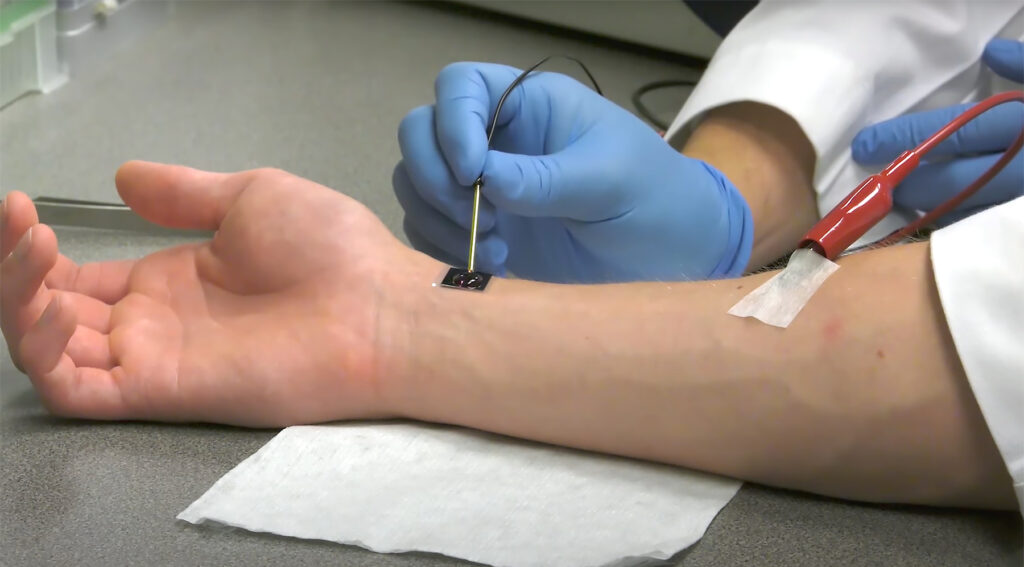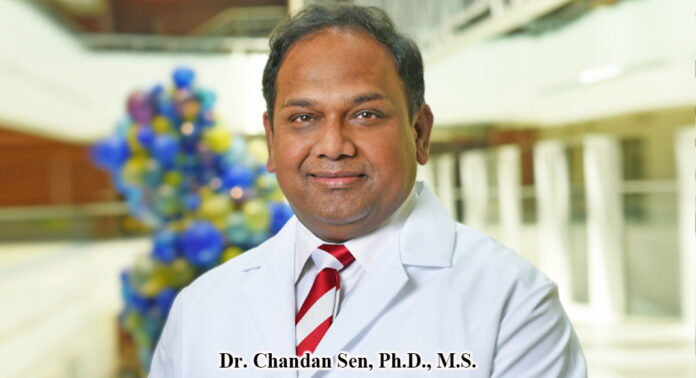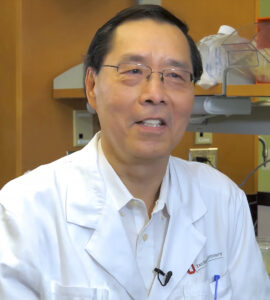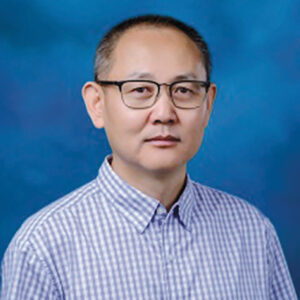Mega Doctor News
Dr. Chandan Sen, Ph.D., M.S., a distinguished expert in regenerative medicine and innovative wound care technologies, joined the University of Pittsburgh School of Medicine and UPMC. His arrival in Pittsburgh is not just a personal career move but a significant enhancement to the region’s medical and research capabilities. He brings a large team and a robust portfolio of ongoing research.
Dr. Sen took on multiple key roles within the university and its medical center. He serves as a Professor of Surgery, with a secondary role in the Department of Plastic Surgery, reflecting his broad expertise in applied medical sciences. Moreover, Dr. Sen undertook leadership positions as Associate Vice Chancellor for Life Sciences Innovation and Regenerative Medicine at Pitt and led as Chief Scientific Officer of UPMC Wound Healing Services.
Adding Dr. Sen to the faculty is expected to significantly accelerate the University of Pittsburgh’s research momentum, particularly in critical areas like tissue repair and regeneration. Anantha Shekhar, M.D., Ph.D., senior vice chancellor for the Pitt Schools of the Health Sciences, has highlighted the profound impact of Dr. Sen’s work on the medical and scientific community. The concerted potential is particularly notable with plans to enhance connections with other major biomedical innovators, including nearby Carnegie Mellon University.
When Dr. Sen began his tenure at Pitt and UPMC, he brought more than two dozen faculty, postdoctoral associates, and staff from Indiana University. This group includes Gayle Gordillo, M.D., the Senior Medical Director of UPMC Wound Healing Services. Dr. Gordillo plays a crucial role in overseeing wound care delivery across 20 outpatient centers, indicating a significant expansion and refinement of UPMC’s capabilities in patient care.
Dr. Sen’s move to Pittsburgh is a crucial development in enhancing the city’s status as a leader in medical innovation and patient care, especially in the specialized fields of wound care and tissue regeneration. His team’s arrival is expected to bring fresh perspectives and accelerated progress in these vital areas of healthcare.
In an engaging conversation with Mega Doctor News, Dr. Chandan Sen, a leader in regenerative medicine, detailed the progress of his groundbreaking research on wound care chips. Dr. Sen revealed that their innovation, which originated from an idea in 2016, has undergone rigorous testing in small and large animals, yielding promising results. With the unique capability of these chips to reprogram body tissues, bypassing the need for stem cells, Dr. Sen’s team is poised to transition into human trials when approved. His enthusiasm was palpable as he discussed the potential for regulatory approval, possibly later this year in jurisdictions outside the United States, followed by efforts to secure U.S. approval depending on the initial outcomes.
Dr. Sen elaborated on the extensive groundwork since the project’s inception nearly eight years ago. The first significant breakthrough came in 2017 with the publication of their findings, supported by philanthropic funds that helped with the initial development of the wound care chip. Since then, several publications have highlighted the chip’s efficacy, showcasing its ability to positively impact tissue regeneration across various applications. According to Dr. Sen, this innovative approach represents a model shift in medical treatments for wound care, highlighting a new era where technology and medicine converge to heal without the complexities of traditional methods.
The discussion also went into the joint efforts that have been instrumental in the project’s success. In the initial stages, Dr. Sen worked hand in hand with Jim Lee, a professor of engineering and nanotechnology at Ohio State University. The project gained momentum at Purdue, adding Dr. Yi Xuan, another nanotechnology expert, to the team. The expertise of these individuals, along with the contribution of over 40 team members who later relocated to Pittsburgh, underlines the interdisciplinary approach crucial to the chip’s development and anticipated success.
Adding a personal touch to the discussion, Dr. Sen acknowledged Dr. Gayle Gordillo, a plastic surgeon, and a key team member, highlighting the diverse expertise pooled into this project. The collaborative environment and extensive pre-clinical testing, including human cells and tissues, sets a strong foundation for the forthcoming phases. Dr. Sen’s vision for a new frontier in regenerative medicine, marked by this innovative chip technology, promises to revolutionize the healing and tissue regeneration approach, marking a significant leap forward in medical science.
Dr. Sen’s appointment at the University of Pittsburgh and his leadership at the McGowan Institute for Regenerative Medicine mark a significant advancement in wound care and regenerative medicine. His extensive research, focusing particularly on therapies for chronic wounds, is poised to make substantial impacts on public health, especially among the 27 million U.S. adults living with diabetes who are at risk of developing serious foot ulcers.
Dr. Sen’s efforts in the Diabetic Foot Consortium—an NIH-funded network—are crucial given the high risk of amputation that diabetic patients face due to foot ulcers. As chair of this multi-center initiative, he underlines his commitment to reducing these risks through enhanced wound care methodologies.
According to our research, the situation with diabetic foot ulcers (DFU) in the U.S. remains a significant health concern due to its association with high morbidity and mortality rates. Diabetic foot ulcers are a common complication of diabetes and are the leading cause of lower extremity amputations in the United States. They often lead to hospital admissions and substantially impact the quality of life for those affected.
The lifetime risk of developing a foot ulcer for individuals with diabetes ranges from 19% to 34%, and the recurrence rates are high. Diabetic foot ulcers can lead to severe outcomes, including infections and amputations. The amputation risk is particularly exacerbated by factors such as peripheral artery disease and neuropathy, which impair wound healing and circulatory functions.

Innovative Nanotransfection Technology
One of the most groundbreaking aspects of Dr. Sen’s work involves the development of nanotransfection technology. This technique transforms skin tissue into other types of functional tissues, which can be used to heal burns, treat injuries, and replace damaged or diseased tissues. This technology offers hope for more effective treatments and opens new doors for the application of regenerative medicine across various conditions.
Integrating Dr. Sen’s team into the Pitt-UPMC ecosystem will drive significant advancements in interdisciplinary biomedical and clinical research. The McGowan Institute, under his co-leadership, will serve as the Pennsylvania site for the Diabetic Foot Consortium, with additional support from the Joslin Diabetes Center at Harvard as a satellite site. This joint network, enriched by Dr. Sen’s innovative research and the clinical trials conducted across 20 UPMC wound care sites, aims to establish the Institute as a leader in the emergent field of wound care
Dr. Sen’s impressive academic journey began with his education in Kolkata, India, and progressed through significant roles at prestigious institutions like Lawrence Berkeley National Laboratory and Ohio State University. Before his move to Pitt, he was deeply involved in wound care and regenerative medicine research at Indiana University. His scholarly contributions include more than 350 peer-reviewed publications and several books, highlighting his profound impact on the medical research community.
Awards and Recognition
His contributions to the field have been recognized with numerous awards, including the 2018 Edison Award for his innovative work in tissue nanotransfection and his election to the National Academy of Inventors in 2021. These accolades reflect his achievements and his ability to advance the entire field of regenerative medicine.
Dr. Sen’s move to Pittsburgh is more than a career shift—it is a strategic enhancement that promises to influence the future of medical science and patient care globally, particularly in the vital areas of wound care and tissue regeneration.
Scan QR and watch a video of how the chip works.












